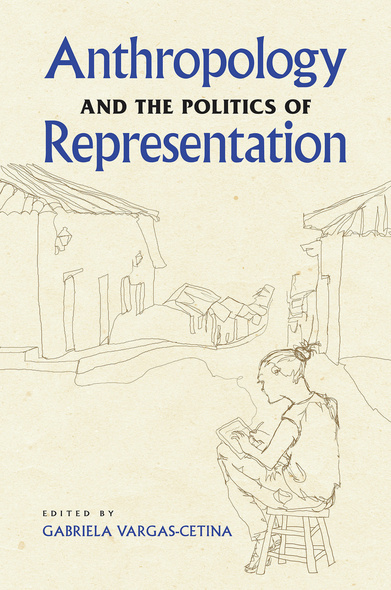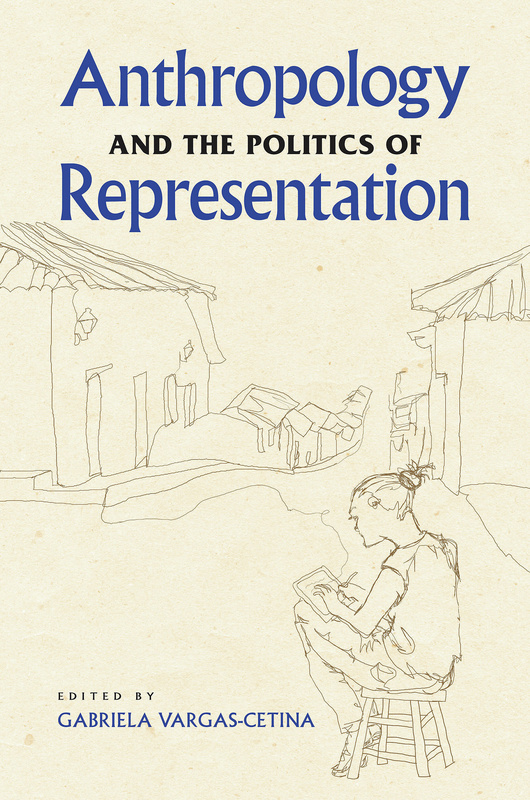Our shopping cart is currently down. To place an order, please contact our distributor, UTP Distribution, directly at utpbooks@utpress.utoronto.ca.

320 pages, 6 1/8 x 9 1/4
3 illustrations
Paperback
Release Date:01 Feb 2013
ISBN:9780817357177
Anthropology and the Politics of Representation
University of Alabama Press
Examines the inherently problematic nature of representation and description of living people in ethnography and in anthropological work
In Anthropology and the Politics of Representation volume editor Gabriela Vargas-Cetina brings together a group of international scholars who, through their fieldwork experiences, reflect on the epistemological, political, and personal implications of their own work. To do so, they focus on such topics as ethnography, anthropologists’ engagement in identity politics, representational practices, the contexts of anthropological research and work, and the effects of personal choices regarding self-involvement in local causes that may extend beyond purely ethnographic goals.
Such reflections raise a number of ethnographic questions: What are ethnographic goals? Who sets the agenda for ethnographic writing? How does fieldwork change the anthropologist’s identity? Do ethnography and ethnographers have an impact on local lives and self-representation? How do anthropologists balance long-held respect for cultural diversity with advocacy for local people? How does an author choose what to say and write, and what not to disclose? Should anthropologists support causes that may require going against their informed knowledge of local lives?
In Anthropology and the Politics of Representation volume editor Gabriela Vargas-Cetina brings together a group of international scholars who, through their fieldwork experiences, reflect on the epistemological, political, and personal implications of their own work. To do so, they focus on such topics as ethnography, anthropologists’ engagement in identity politics, representational practices, the contexts of anthropological research and work, and the effects of personal choices regarding self-involvement in local causes that may extend beyond purely ethnographic goals.
Such reflections raise a number of ethnographic questions: What are ethnographic goals? Who sets the agenda for ethnographic writing? How does fieldwork change the anthropologist’s identity? Do ethnography and ethnographers have an impact on local lives and self-representation? How do anthropologists balance long-held respect for cultural diversity with advocacy for local people? How does an author choose what to say and write, and what not to disclose? Should anthropologists support causes that may require going against their informed knowledge of local lives?
This volume has excellent potential as a primer on the key issues of ethics and politics of anthropological research today. It introduces lucidly a range of sources and portrays vividly what the practice of anthropological research in its traditional orientations has become. I know of no other volume that does as much as well.’
—George E. Marcus, author of Ethnography through Thick and Thin and editor of Critical Anthropology Now: Unexpected Contexts, Shifting Constituencies, Changing Agendas
Gabriela Vargas-Cetina is a professor of anthropology at Universidad Autónoma de Yucatán. She has done fieldwork in Italy (Sardinia), Canada (Alberta), and Mexico (Chiapas and Yucatán) and has published mainly on globalization and cooperatives in Italy and Mexico and music and dance in Canada and Mexico. She is the coeditor of Representaciones Culturales: Imágenes eImaginarios de lo Yucateco and Modernidades Locales: Etnografíadel Presente Múltiple.






